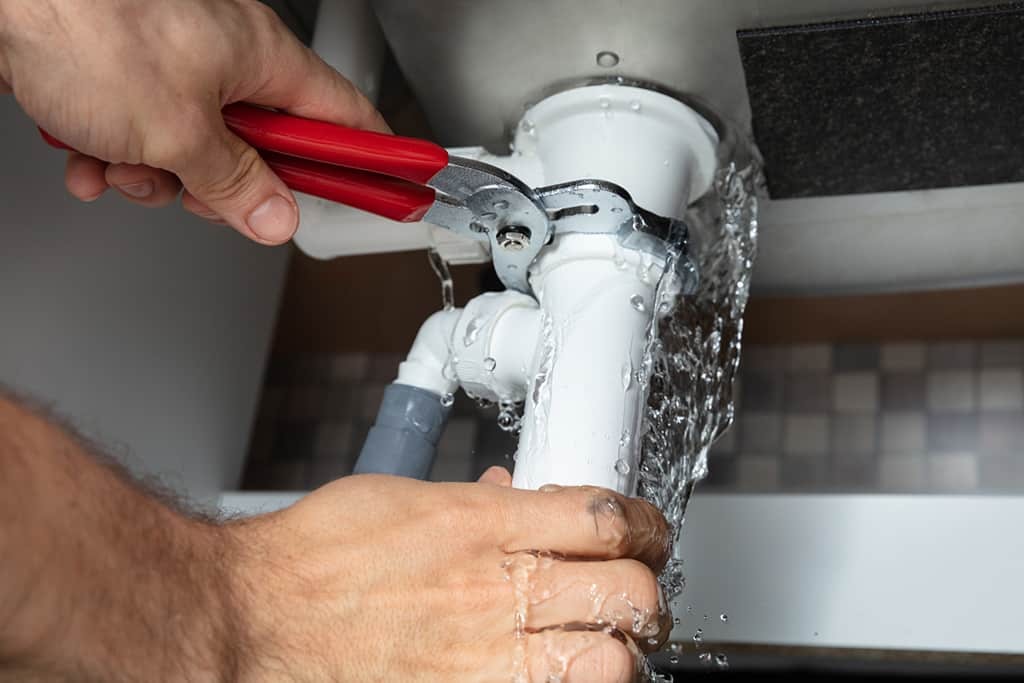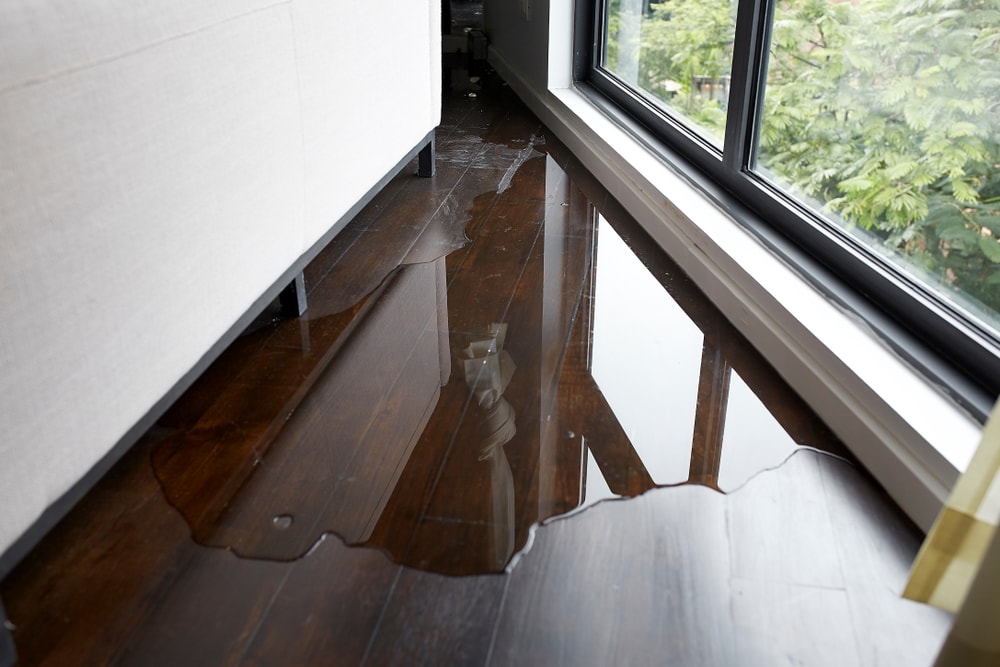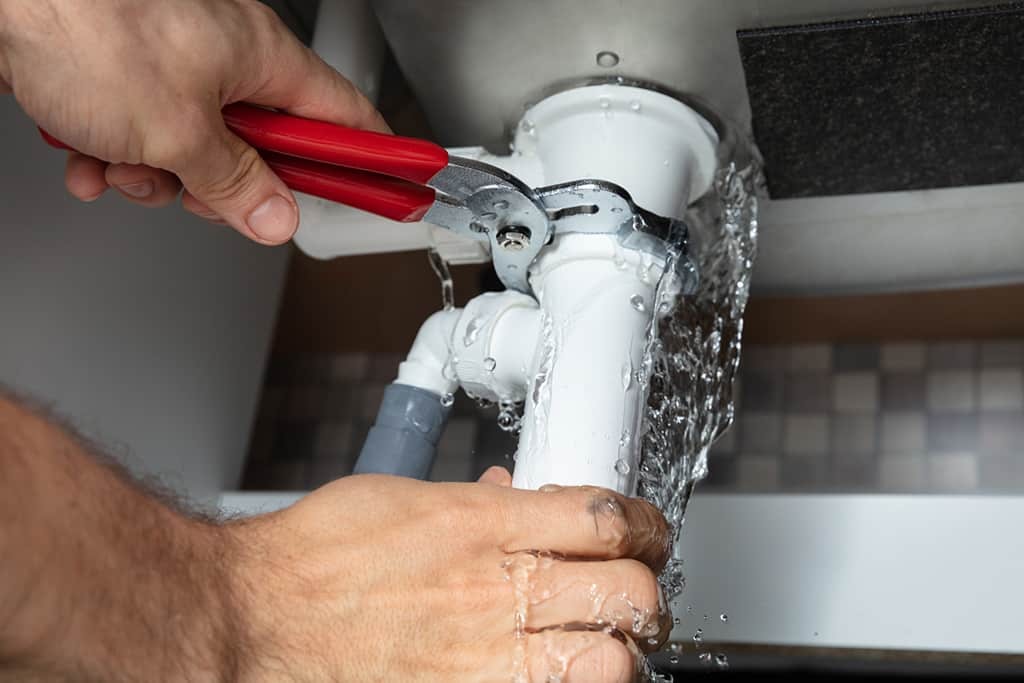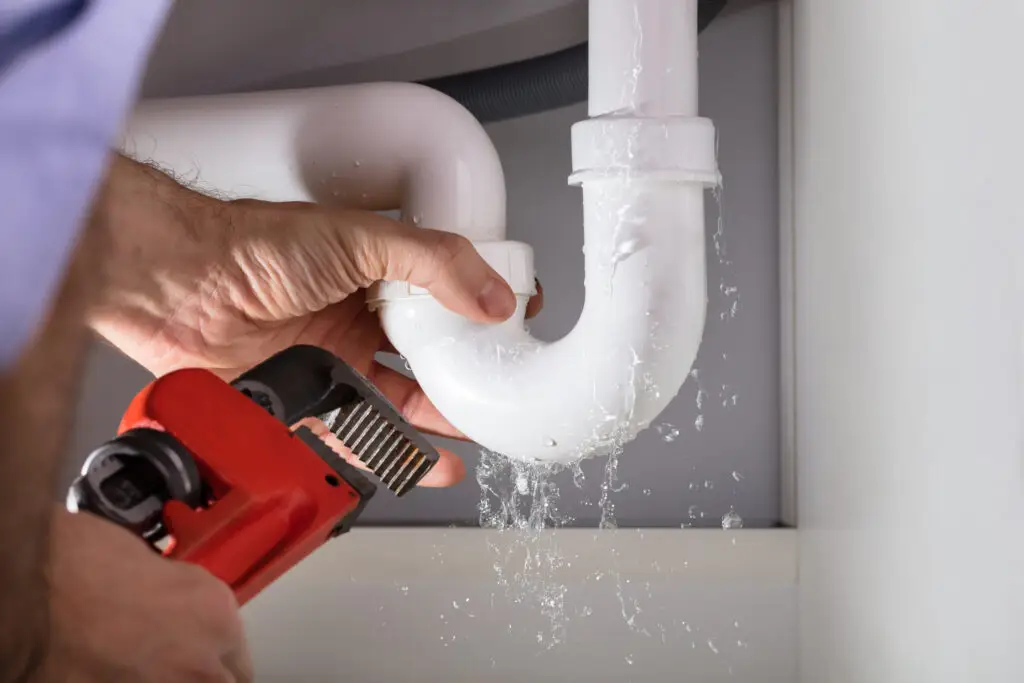When a plumbing emergency strikes, it rarely happens at a convenient time. One moment everything’s fine, the next, your bathroom is flooding or your water heater has completely failed.
It’s crucial to act quickly during a plumbing emergency to minimize damage and prevent the situation from escalating.
Knowing what to do during a plumbing emergency can make all the difference. It can help you stay calm, protect your property, and prevent thousands in water damage. At Apollo Plumbing, we’ve helped homeowners across Edmonton navigate everything from burst pipes to sewage backups. Here’s your go-to guide for staying in control when the unexpected happens.
Why Plumbing Emergencies Happen
Your home’s plumbing system is made up of a network of pipes, fixtures, valves, and drains. And like any system, it’s vulnerable to wear, damage, and unexpected failure, which can lead to emergency plumbing issues.
Common causes of emergency plumbing situations include:
- Frozen or burst pipes
- Water heater breakdowns
- Overflowing toilets or clogged drains
- Gas line leaks
- Sewer backups
- Sudden drops in water pressure or water supply
These issues often occur during extreme weather, aging infrastructure, or when small problems are left unaddressed for too long.

Immediate Steps to Take During a Plumbing Emergency
1. Stay Calm and Assess the Situation
First things first, don’t panic. Take a moment to locate the problem and identify the specific plumbing issue you’re dealing with. Is water actively leaking? Can you see where it’s coming from? Is there a strange smell, standing water, or a gurgling drain?
The more you understand, the better you can respond.
2. Shut Off the Water Supply
If water is gushing, leaking, or pooling, turn off the water source right away.
- For localized issues (like a toilet or sink), turn off water to the specific pipe by using the shutoff valve near the fixture.
- For major leaks or unknown sources, locate your home’s main shutoff valve, usually near where your main water line enters the home, and turn it off.
After shutting off the supply, drain any remaining water from pipes by opening faucets or open drains.
Stopping the water flow is your best chance to minimize damage. After turning off the main supply, open outdoor drains or taps to help manage water flow and prevent clogs.
3. Avoid Attempting Risky DIY Repairs
Some DIY methods can buy you time. However, attempting DIY repair during a plumbing emergency is not recommended, as it can often make things worse. Avoid using:
- Harsh chemicals on clogged drains, they can damage pipes and rarely fix the issue.
- Tools to open water heaters, gas lines, or sewage systems, leave that to the pros.
- Temporary fixes like duct tape on burst pipes, it won’t hold under pressure.
- Attempting a DIY repair on complex plumbing issues, this can increase the risk of further damage and safety hazards.
If you can address small leaks safely with a towel, bucket, or plumbers tape, that’s fine. Only use safe temporary measures to contain the problem until professional help arrives. For anything beyond that, avoid DIY repair and wait for a professional.
4. Clear the Area and Prevent Further Damage
Once the water is off, take steps to protect your home:
- Remove valuables from the area
- Use towels or a wet/dry vacuum to remove excess water
- Quickly address minor floods by soaking up water to prevent further damage
- Open windows to help dry out the space and prevent mold growth
- Keep kids and pets away from flooded or affected areas
If water has come into contact with electrical appliances or outlets, don’t touch them, wait for a professional inspection.
While clearing the area, check for identifiable leaks and take steps to contain them, such as turning off the water supply to the affected fixture and temporarily patching the leak until professional help arrives.
5. Call an Emergency Plumber
Now it’s time to call in a pro. In emergency situations, it’s crucial to contact a local plumber for a fast response. At Apollo Plumbing, our professional plumbers are available 24/7, ready to respond to plumbing emergencies across Edmonton, without charging overtime fees. Our team of professional plumbers has the expertise to handle urgent issues and ensure your safety.
Be ready to provide details about:
- The location and nature of the issue
- When it started
- Any steps you’ve taken so far
While you wait for the plumber to arrive, let us know about any temporary measures you’ve taken so we can address them properly. We’ll walk you through what to do until we arrive and make sure your system is safe, stable, and fully repaired. Seeking professional help ensures a permanent solution to your plumbing emergency.

Addressing Clogs and Blockages
When a plumbing emergency strikes, clogged drains and blockages can quickly escalate into bigger plumbing issues like sewage leaks or overflowing toilets. Acting quickly is key to preventing further damage. Start by using a plunger to try and clear the blockage, this can provide temporary relief and help restore some water flow. Avoid pouring harsh chemicals down your drains, as these can damage pipes and rarely solve the problem for good. Instead, try a natural solution like baking soda and vinegar to break up minor clogs. If the blockage persists or you notice sewage leaks, it’s time to call a professional plumber. Emergency plumbers have the right tools and expertise to safely clear clogged drains and prevent additional plumbing emergencies.
Managing Leaks
In emergency plumbing situations, even small leaks can lead to major leaks and extensive damage if not handled promptly. The first step is to shut off the water supply at the main valve to stop further water from entering your plumbing system. For small leaks, use heavy-duty paper towels or towels to soak up excess water and minimize damage to floors and walls. Plumber’s tape can provide temporary relief by sealing minor leaks until a professional arrives. However, avoid attempting DIY repairs, as these can make the problem worse and lead to more costly repairs. Always call a professional plumber to inspect and fix leaks, ensuring your home is protected from further water damage.
Handling Burst Pipes and Gas Line Leaks
Burst pipes and gas line leaks are among the most serious plumbing emergencies and require immediate attention. If you suspect a burst pipe, quickly locate and shut off the main water valve to stop the flow of water. For gas line leaks, shut off the gas line immediately and open windows and doors to ventilate the area. If you smell gas or suspect a dangerous leak, evacuate your home and call an emergency plumber right away. Never attempt to repair burst pipes or gas lines yourself, these emergencies demand the expertise and equipment of a professional. Emergency plumbers can safely repair burst pipes and gas line leaks, protecting your home and family from further harm.
Securing Your Home
During a plumbing emergency, taking steps to secure your home can help prevent further damage. Start by shutting off the water supply at the main valve, which is usually located near your water meter. Next, turn off your hot water heater to prevent overheating or additional water flow, if you have a gas water heater, be sure to shut off the gas line as well. Move valuable items, electronics, and important documents away from affected areas to keep them safe from water damage. You can also use sandbags or towels to divert water flow and protect your property. Once you’ve taken these steps, call a professional plumber to inspect your plumbing system and make the necessary repairs, ensuring your home is safe and secure.
Common Plumbing Emergencies We Handle
- Burst pipes
- Overflowing toilets
- Sump pump failures
- No hot water / water heater issues
- Gas line concerns
- Dangerous gas leaks
- Sewage backups
- Clogged drains
- Standing water in basements or utility rooms
If it’s urgent, we’re on it, day or night, weekday or weekend.
Preventing Plumbing Emergencies in the Future
You can’t prevent every issue, but you can reduce your risk with these tips:
- Schedule annual plumbing inspections and have a professional plumber inspect your home’s plumbing system to catch hidden issues early.
- Regularly check your hot water system, water heater, sump pump, and shutoff valves as part of routine maintenance.
- Keep your plumbing systems clean and free of blockages by cleaning drains and avoiding flushing anything other than toilet paper.
- Insulate pipes in winter to prevent freezing.
- Know where your main water shutoff is before you need it.
Apollo Plumbing offers maintenance, inspections, and emergency service for homeowners across Edmonton and surrounding areas. Maintaining your home’s plumbing system is essential to prevent emergencies and keep your home safe. When you call, we’ll make sure your system is safe and your home is protected.
TL;DR – What to Do During a Plumbing Emergency
- Stay calm and quickly identify the plumbing problem
- Shut off the water at the fixture or main shutoff valve
- Avoid risky DIY fixes — especially for gas or sewage
- Clear the area to prevent further damage
- Call an emergency plumber like Apollo Plumbing for fast, expert help
Final Thoughts
When a plumbing emergency happens, fast action matters, but so does knowing when to step back and call in the pros. Immediate action is crucial to minimize damage and ensure safety during a plumbing emergency.
At Apollo Plumbing, we’ve handled every kind of emergency since 1969. Our team is ready 24/7 to help you minimize damage, restore your plumbing system, and get your home back to normal.
Need urgent help? Contact Apollo Plumbing now or learn more about our emergency services and sump pump support.

